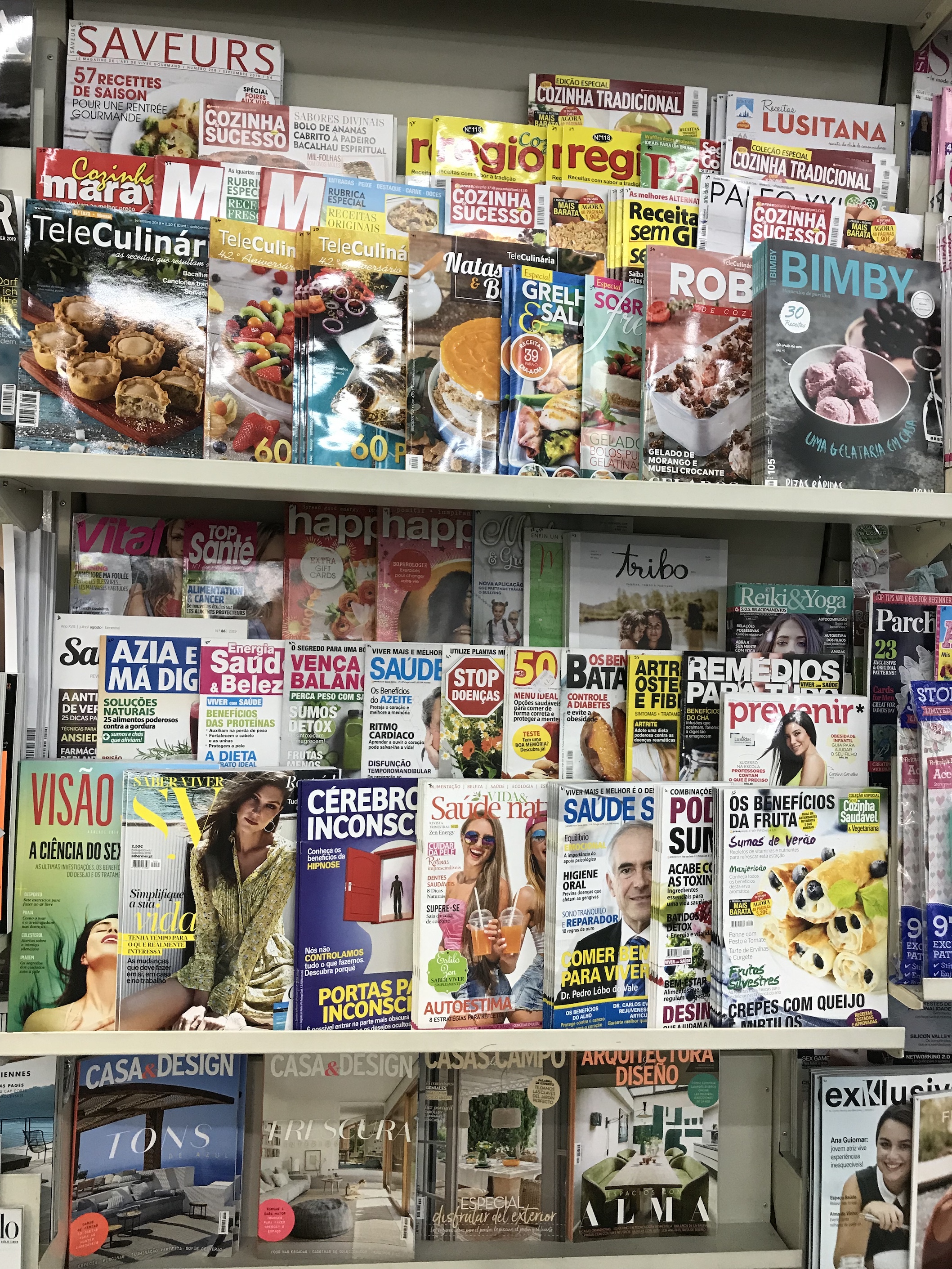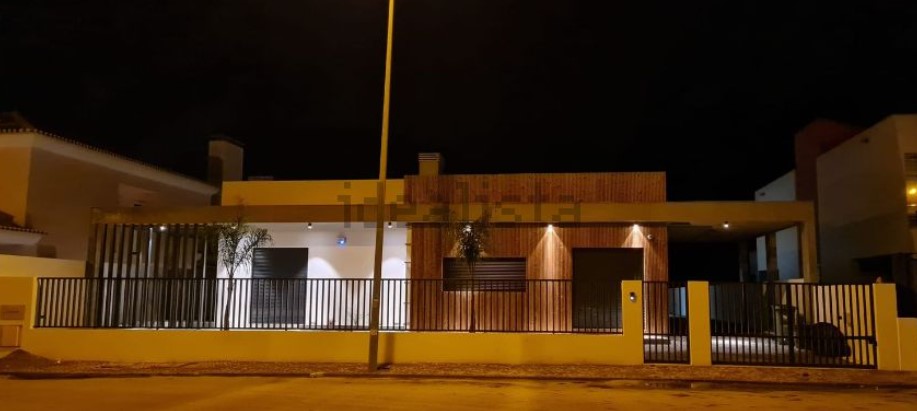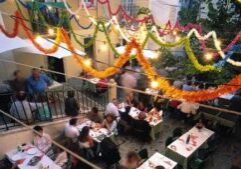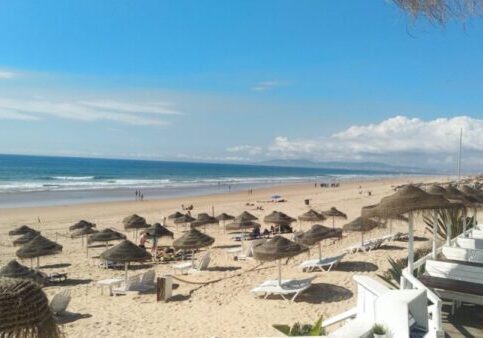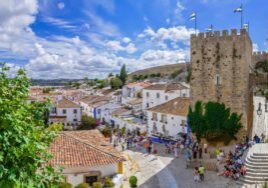10 tips for learning Portuguese quickly
![]()
Are you planning to live in Portugal but don’t speak the language of Camões? Don’t panic! You’re not the first or the last to be in this situation. Although we’ve all dreamed of speaking a foreign language in the blink of an eye, unfortunately it’s not that simple! There’s no magic formula: you just have to work at it! Today I’m sharing 10 tips for learning Portuguese quickly.
If you follow a few of these tips and invest yourself in learning the language, you’ll make rapid progress. I’m not going to tell you it’s easy – that would be a lie – but it’s not impossible. And don’t forget that speaking Portuguese will be one of the keys to integrating into your new life in Portugal.
Boa Leitura!

Tip 1: Make your daily life your best ally for learning Portuguese
Restaurants, supermarkets, stores… The first words and phrases you learn will be those of your everyday life. Little by little, as you need to, you’ll build up your vocabulary without too much effort, just by going about your life.
One mistake not to make is to start making endless lists of words to learn by heart. It’s a mistake we all make, but in the end, it doesn’t help you memorize the words. You’ll learn your list assiduously at first, then stop and quickly forget the vocabulary you’ve learned. It’s much easier to learn vocabulary related to situations you find yourself in regularly than to say to yourself: “Well, today I’m going to learn all the vocabulary related to leisure activities”.
So memorizing words in context and relating them to something concrete is the way to go. My advice is to think about the situations you’re likely to find yourself in at the start of your installation and identify the associated vocabulary. For example:
- Food-related vocabulary. If you’re as greedy as I am, you’ll master food-related vocabulary pretty quickly, because there’s no question of going hungry, is there? You’ll learn this vocabulary when ordering a meal in a restaurant, going to the supermarket, looking for bread in the bakery, booking a table in a restaurant…
- Meeting new people. You’ll be arriving in a new country, in a new life, and will probably want to recreate a social life. So, introducing yourself, learning to ask basic questions to get to know someone, knowing how to talk about your family… will be essential and will be part of the first words and phrases you record.
- Vocabulary related to discovering a city. Once you’ve settled in your new city, you’ll want to discover it and know how to ask where a particular monument, street, means of transport… is. You’ll quickly pick up this vocabulary, so excited will you be to discover your new little paradise.
Don’t put pressure on yourself with vocabulary, even if it’s said that you need to know 5000 words of a language to be able to talk about any subject. Knowing 1000 would enable you to understand 85% of conversations! Not bad at all, is it?
Tip 2: Read short texts to learn Portuguese
Again with the aim of learning vocabulary and building sentences, I urge you to read. Now, I’m not telling you to go to the Fnac and pick up the first Portuguese book you find, but there are other options available to you:
- short books in Portuguese on a theme that interests you. For example, a guide to Portugal, a travel book with short reviews, a recipe book, a comic strip… As you can see, any book will do, as long as it interests you and is relatively short to avoid Portuguese indigestion.
- magazines are another good tool, as they allow you to choose a theme you like: travel, fashion, sport, celebrities… and they’re full of short, easy-to-read articles. Choosing a subject that interests you will make you want to read even more, and you’ll assimilate the vocabulary of a topic you enjoy talking about.
- newspapers are a good option too, because you’ll be learning the language and, at the same time, learning a wide variety of things about the country you live in: its news, its culture..
Wide choice of magazines and newspapers in Portuguese newsagents.
tip 3: Watch short videos on the Internet (Podcast, Youtube, Instagram story…)
One of the best ways to learn a language is to hear it spoken. You may not realize it, but getting used to the sounds of your new language will help you learn Portuguese enormously. Camões ‘ language includes many sounds that don’t exist in French(I’d be curious to know how you pronounce the name “Camões”, for example). Working on these sounds is important to soften the French accent, which is often very pronounced. So yes, I’ve heard that the French accent is sexy, but only up to a point! After all, the aim is for the person in front of you to understand you!
So, to work on these sounds and familiarize your ears with them, I strongly advise you to watch short videos. These videos can be, for example
- youtube videos,
- podcasts
- instagram stories from Portuguese influencers(personally, I like to watch the posts and stories of travel instagrammer João Cajuda, but also those of influencer Alice Trewinnard for her wellness tips...)
As with magazines, the important thing is to choose short videos that relate to your tastes and interests: fashion, travel, wellness, sport… and thanks to the Internet, you’re spoilt for choice! The advantage of this type of video is that they’re short, so you can pause and replay them over and over again if you don’t understand a passage.
Did you know? When we’re babies, we’re able to recognize the sounds of all the world’s languages, i.e. around 150 sounds. When we grow up, our brains focus only on the sounds of our native language. Too bad, isn’t it?
One of João Cajuda’s recent Instagram photos from his stay in Bordeaux. Reading the photo captions will teach you vocabulary, and listening to his stories will help you with speaking.
Tip 4: Watch films and TV seriesto learn Portuguese
Watching a film or TV series in Portuguese seems impossible. Well, yes, it’s difficult! But the cool thing about Portugal is that most films and TV series are subtitled!
So if you know English, you can watch the film or series in English with Portuguese subtitles. It’s interesting to be able to listen to the film in English and at the same time see the corresponding words in Portuguese. I’ll be honest with you, I don’t last a whole film reading the Portuguese subtitles; after a while I get “tired” and stop reading. But even so, this method still helps you learn vocabulary.
The film “Assalto Ao Poder” is currently showing in cinemas.
Tip 5: Sing like a star to learn Portuguese
Singing is another great way to learn Portuguese. Put on the Portuguese radio and as soon as you hear a song you like, look at the name on your car radio, or use the Shazam application to find the title.
Then, at home, enter the song title into your search engine and add “French translation”. This way, you’ll find the song and its translation. This will enable you to enrich your vocabulary, assimilate pronunciation, grasp sentence construction and also impress your friends by singing in Portuguese. Practice repeating the phrases of the song to acquire good intonation. (Please note that some songs are in Brazilian Portuguese or Portuguese Creole)
If possible, choose songs that are slow enough to give you time to read and understand the lyrics. The two songs below are a good example(warning to the tough guys reading this, these are songs for midget girls 🙂 ):
- Fernando Daniel and his song “Espera”. The song here and the lyrics with translation here.
- Carolina Deslandes and her song “A vida toda”. Song and lyrics here.
YouTube clip Fernando Daniel: Espera
Tip 6: Meet the locals to learn Portuguese
It’s not always easy to set out to meet new people, but making connections with locals will go a long way. They can be your neighbors, your roommates, your baker, your colleagues, or simply the little grannies and grandpas you regularly meet on the streets and squares of Portugal. Don’t hesitate to start a discussion with them, they’ll be delighted!
You’ll find that some Portuguese people will help you by speaking English(as many Portuguese people speak English very well) and sometimes even French. Don’t hesitate to interrupt them and explain that you’d prefer them to continue speaking Portuguese with you.
Also, have an active social life and go out into town with a group of Portuguese people. You’ll feel lonely at first, listening to them talk without understanding or interacting, but it’ll keep you working.
A final “trick” is to meet a Portuguese person who wants to learn French. In this situation, you can exchange expressions, phrases, words… from one language to the other. It’s a linguistic exchange that can help both of you make rapid progress.
Tip 7: Use language apps to learn Portuguese
There are lots of websites and applications for learning Portuguese that you can download onto your computer or smartphone. These applications are often free in their “basic” version, and then charge a fee if you want a more complete version.(Note that many are in Brazilian Portuguese, and although there are similarities with Portuguese from Portugal, the accent and some words are different)
The good thing about these apps is that you can use them before you arrive in Portugal, since until you’re in the country you won’t have access to the aforementioned tips. Among the best-known apps are :
Various apps for learning Portuguese
Tip 8: Take language courses to learn Portuguese
As I said earlier, Portuguese pronunciation is not easy. Pronunciation and accentuation are very different between French and Portuguese. Portuguese is a “nasal” language. It won’t be easy to erase your “sotaque”(accent).
A course in Portuguese can do a lot for you, especially in terms of pronunciation and oral comprehension. Various options are available to you:
- university courses: Portuguese courses for foreigners are available at many universities in Portugal(indicative price: 5€/10€ per hour). Here are just a few ofthe universities that offer Portuguese courses for foreigners
- courses at theAlliance française: there are a dozen or so located all over Portugal: Braga, Lisbon, Leiria, Porto. ..(indicative price: 5€/10€ per hour)
- courses in private language institutes , which offer courses in small groups most of the time(indicative price: 10€/15€ per hour). Here are just a few of the institutes in Portugal
- private tuition: you can find this type of course through specialized institutes or via classified ads( olx sites, custo justo...). Although private lessons are more expensive than group courses, they enable you to learn Portuguese quickly and help you a lot with pronunciation. You can find home lessons by private tutors for between €15 and €25 an hour, and private lessons in a language institute for between €20 and €30 an hour(I advise you to check whether or not the teacher is right for you during a first “test” lesson).
Please note that the Portuguese government has set up the PTT (português para todos) program, which offers 150 hours of free Portuguese lessons to foreigners living in Portugal. You can find details here, and the number to call to register is 808 257 257. You’ll need to enclose the following documents
- Identity document,
- Registration at the town hall of your place of residence in Portugal,
- Proof of residence in Portugal,
- SEF certificate(serviço estrangeiros e fronteiras),
- Portuguese tax number (NIF).
Group language courses.
Tip 9: Carry a few essential tools for learning Portuguese
Go back to your schoolboy ways and buy your own:
- a scary grammar book(I recommend Gramática Ativa by Isabel and Olga Mata Coimbra).
- a small notebook and a pocket-sized French-Portuguese dictionary(or a Smartphone translation app such as Linguee, Reverso or Google translation)
When it comes to grammar, there’s no secret: you need to “cram”. And especially for verbs: irregular tenses and verbs are a nightmare in any language, aren’t they? As an anecdote, for a long time I used the present tense in all sorts of ways: for actions I’d done the day before, the day of, or was going to do the day after. I more or less managed to make myself understood by adding an adverb of time: “ontem”(yesterday), “amanha”(tomorrow), but people still looked at me funny! Little by little, I decided that I had to get to grips with these dreadful verb tenses and their irregularities.
The famous little notebook with long vocabulary lists, as I said earlier in the article, you won’t be looking at in the end. On the other hand, I’d still advise you to have this little notebook to jot down words you may hear in conversations or see in the course of your day. It only takes a few seconds to write down in your notebook, and in the evening you can look up the meaning at home. However, once you have the meaning of the word, remember to use it again in a sentence in context, otherwise you’ll have trouble remembering it.
The grammar book and the famous little notebook.
Tip 10: Trust yourself to learn Portuguese!
My last tip is just to trust yourself. You’re going to tell me that this is a “boat” and that it’s not a concrete tool for learning Portuguese, but in my opinion, one of the main barriers to learning a language is often yourself and your attitude towards the language:
- being fed up and giving up,
- not learning regularly,
- leaning on a friend or companion who already speaks Portuguese and letting him or her do the talking,
- being afraid of saying the wrong thing and therefore not expressing yourself,
- be afraid of your French accent,
- being afraid to speak Portuguese in front of French-speaking friends who know Portuguese.
I’m sure you’ll find yourself in some of the situations listed below:
- laughing at jokes you don’t understand,
- staying silent for an entire evening for fear of speaking,
- being afraid of being asked a question you don’t understand or can’t answer,
- making the person in front of you repeat the same thing four times,
- pretending to understand when you really don’t,
- saying one word instead of another, thereby changing the meaning of an entire sentence,
- mime to try and make yourself understood.
In short, learning a language is a real sport! Don’t give up. You’re going to make mistakes, say stupid things, but at least you’re communicating and learning little by little.
In conclusion
Put Portuguese to good use in your everyday life: in songs, TV series, films, books, meetings… and you’ll quickly become familiar with the language.
Learning Portuguese doesn’t happen in a day or a month. Be regular. Put in a little work every day, even if it’s just half an hour, and I’m sure you’ll see rapid progress.
Ready to learn Portuguese?
If you liked this article, please click on the “Like” button below. And don’t forget to follow us on our social networks: our Facebook group “Amoureux du Portugal”, our Facebook page “Vivre au Portugal” and our Instagram “Vivre au Portugal”.
Receive the latest blog posts and our selection of properties every month.
* required fieldFirst name * *Last name Telephone E-mail address * *Current city of residence Area of interest: *
- Buying a property in Portugal
- Renting a property in Portugal
- Nothing special in mind
Date of arrival in Portugal How can we help you? * * Please contact me:*
- Quickly please
- Later please
Region of interest *
- Almada
- Aroeira
- Seixal
- Setubal
- Other
You can view our Privacy Policy and Termsand Conditions here
Articles Populaires
dernières annonces

2 bedroom apartment with sea view, 10km from Lisbon and 2km from the beaches
Rua da Bica, 103Discover this magnificent 2 bedroom apartment with views of Arriba Fóssil and the sea, 2km…
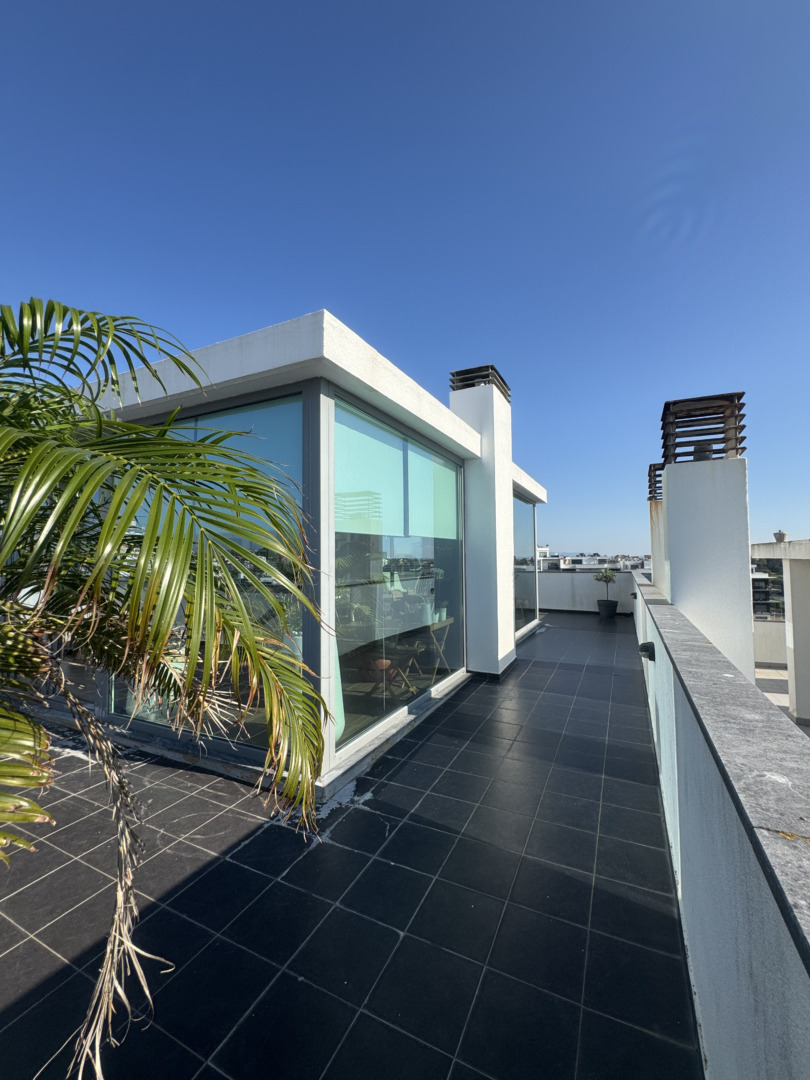
Duplex apartment with sea view 15 minutes from Lisbon
rua Santa Teresa 7Bedroom + duplex apartment with sea view and 15 minutes from Lisbon.
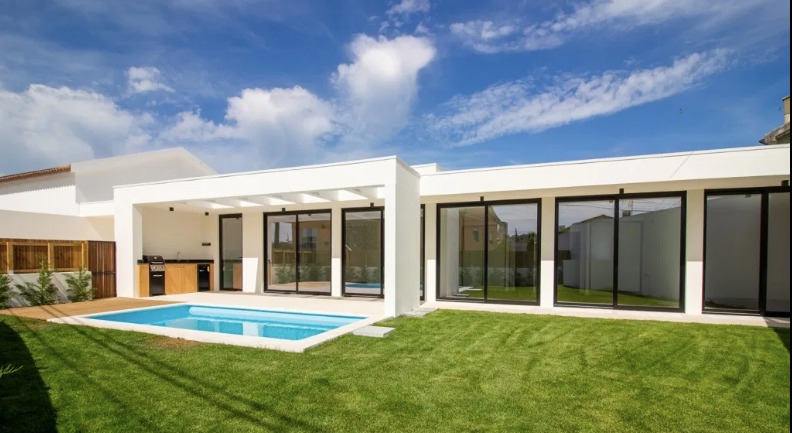
Single-storey house with swimming pool
Just a few meters from the magnificent bay of São Martinho do Porto, lies this…
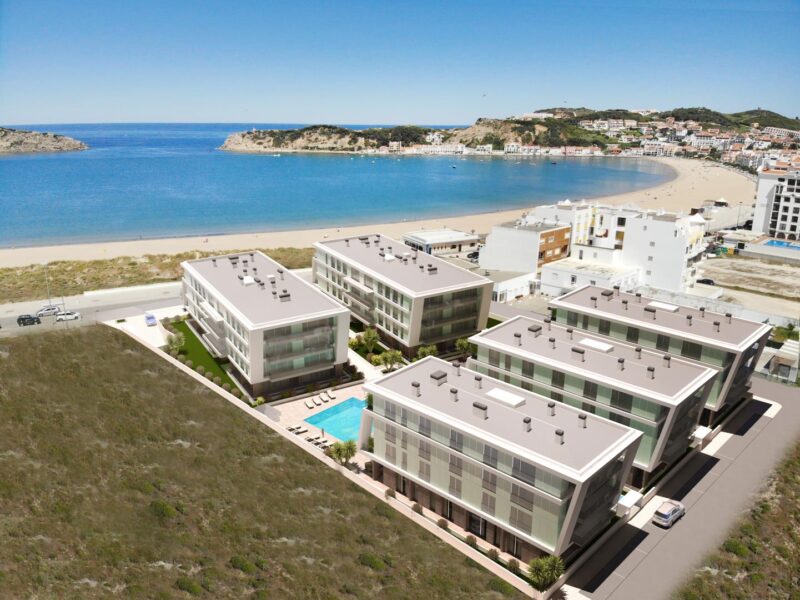
Condominium apartments facing the sea
São Martinho do PortoBeautiful apartments in São Martinho do Porto “Janela da Baía”! Located in the heart of…

Villa already finished and ready to move in: 4-suite bungalow on 750m2 plot in a quiet area of Azeitão
Rua de ParisHouse already finished and ready to move into! Close to shops and services, quick access…

Magnificent house with basement, indoor and outdoor pool in Verdizela/Aroeira
Verdizela/AroeiraNew turnkey project: magnificent single-storey villa, 498m2 in surface area, high-end finishes on a 1875m2…

Luxury apartment on the edge of a nature reserve
Your modern, spacious apartment between the beach and Lisbon’s capital. – Beach 5min – Golf…
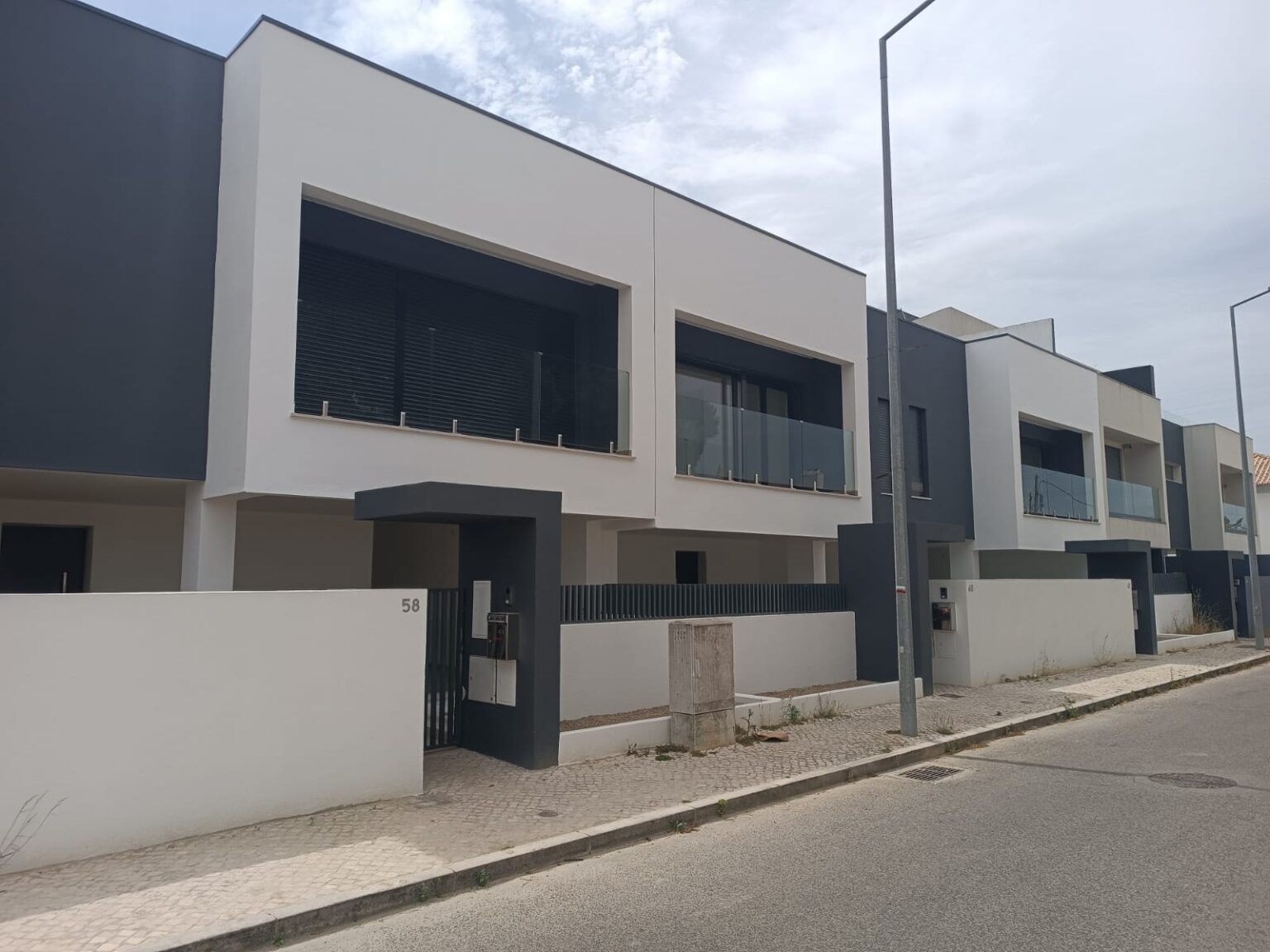
House T3 1 10 min from Lisbon and 5 min from the beaches
PêraREADY TO MOVE IN! New T3 1 ready-to-live-in house in a quiet, rural neighborhood with…

4 bedroom villa with pool and jacuzzi in Aroeira
rua são miguelModern, minimalist architect-designed house with exceptional details in a quiet location in Aroeira 2-storey house…
Inscrivez-vous à notre newsletter
Recevez chaque mois les derniers articles de notre blog "la vie au Portugal" et notre sélection de biens immobiliers à vendre.

